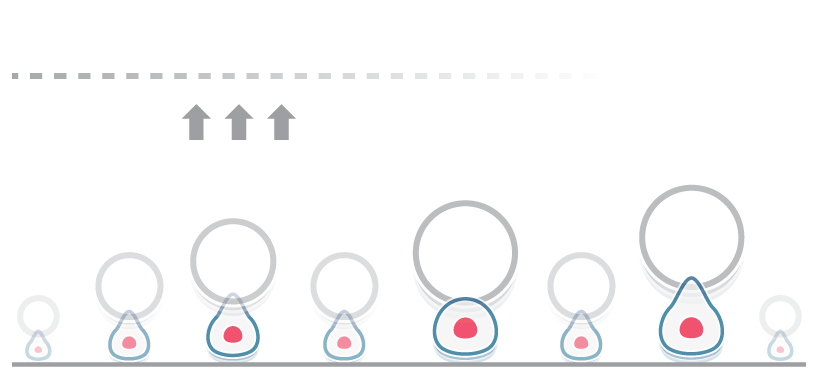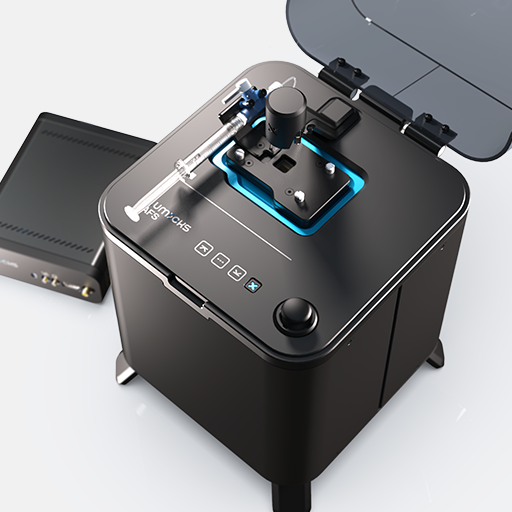A recent publication in Small introduces you to the value of acoustic force spectroscopy (AFS®) to study the viscoelastic properties of individual cells in high throughput. The authors describe how they used this “plug-and-play” instrument to measure mechanical cell properties upon external cues seamlessly.
Romanov et al. specifically assessed how alterations to three parameters (temperature, drug exposure, or membrane-protein expression) influence the viscoelastic characteristics of human cell line HEK293T. In essence, the team could distinguish between cell viscosities by assessing the so-called mean square displacement of randomly moving cells, which describes their deviation from a reference-specific position.
Using this method, the researchers explored changes to the stiffness and fluidity of the cells upon changes in their immediate environment.
“The AFS presents as a powerful tool for capturing the heterogeneity of living cells through rapid, high-throughput measurements of cellular viscoelasticity,” the authors concluded. “A significant advantage of the technique is the ‘plug-and-play’ format that makes force calibration and viscoelastic measurements intuitive and easy.”
Check out the full story “An acoustic platform for single-cell, high-throughput measurements of the viscoelastic properties of cells” in the journal Small if you want to know how to use high-throughput force spectroscopy to assess the properties of single cells.
Are you interested in using force spectroscopy tools like the AFS® or C-Trap® for your research? Feel free to contact us for more information, a demo, or a quote.




